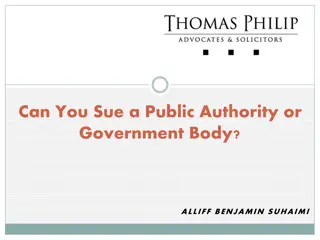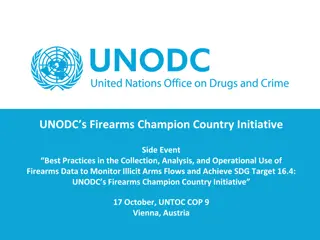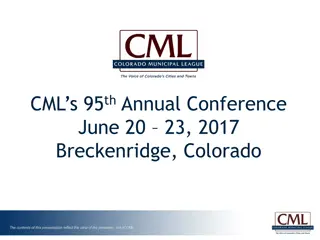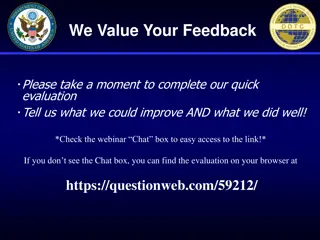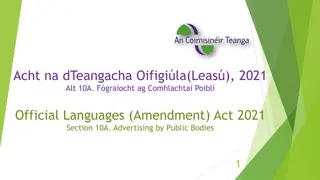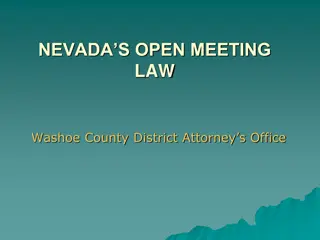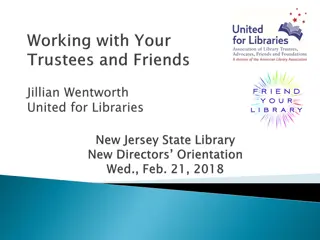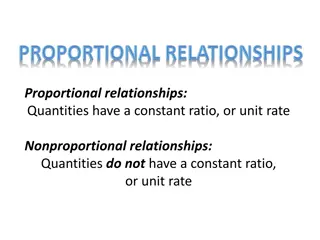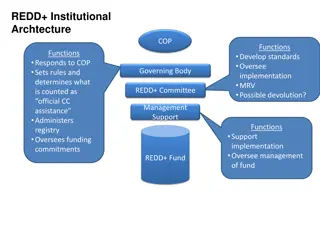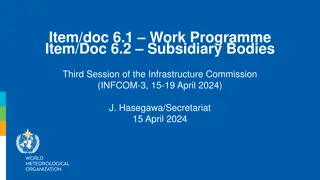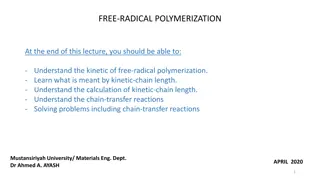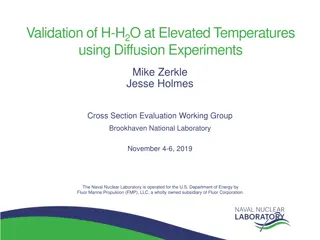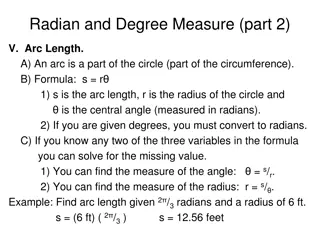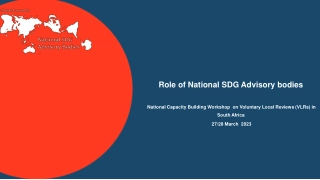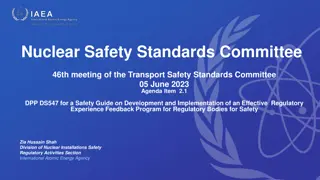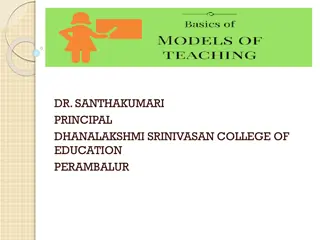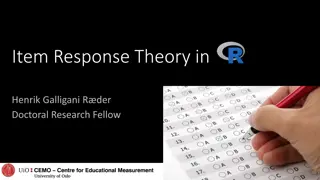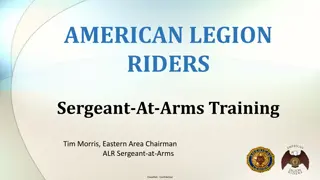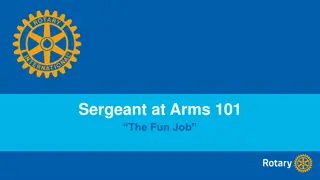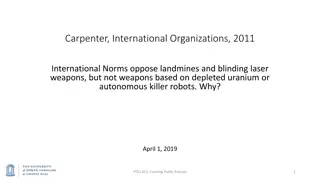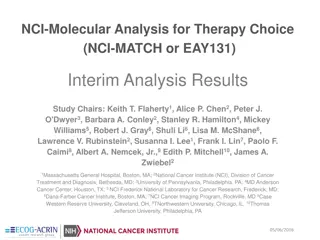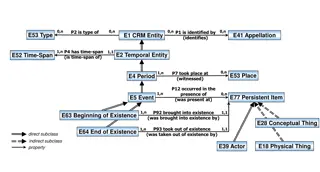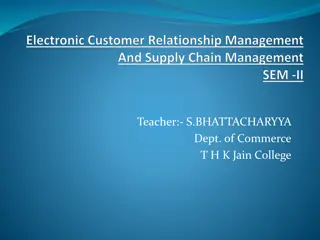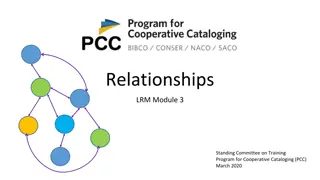Models for Governing Relationships with Arm's Length Bodies in Public Management
Detailed examination of models for managing relationships between governments and arm's length bodies in public management. Discusses principal-agent and principal-steward models, implications for management, steering instruments, and evidence from Dutch practice. Explores solutions for information asymmetry, monitoring, incentives, contracts, and instruments for effective management. Considers supervision, accountability, legal positions, communication, and activities for third parties in the context of public administration.
Download Presentation

Please find below an Image/Link to download the presentation.
The content on the website is provided AS IS for your information and personal use only. It may not be sold, licensed, or shared on other websites without obtaining consent from the author. Download presentation by click this link. If you encounter any issues during the download, it is possible that the publisher has removed the file from their server.
E N D
Presentation Transcript
Agents Agents or stewards? or stewards? Management at Management at arm s arm s length length Prof. dr. Sandra van Thiel s.vanthiel@fm.ru.nl
Background Background Professor of Public Management, department of Public Administration, Institute of Management Research, Radboud University Nijmegen. >20 years of research into arm s length bodies, in particular Dutch ZBOs but also internationally comparative research Frequent consultant to governments and arm s length bodies, most recently on Gambling Authority, Emissions Authority, Dutch National Police 2
Outline Outline Models for relationship between governments and agencies at arm s length: Principal-agent Principal-steward Implications for relationship management, steering instruments Evidence from (Dutch) practice Lessons/recommendations Q&A 3
Model of relationship with arms length bodies Principal Information asymmetry: -Moral hazard -Adverse selection Solution: -Monitoring -Incentives Contract Agent 4
Instruments for management at arms length P-A model Very detailed contracts Frequent communication and information flows (also on details) No activities for third parties (market) No independent legal position (legal form, labour conditions, financial market) Frequent supervision and accountability Government representative in the board 5
Model of relationship with arms length bodies Principal Information asymmetrie: -Moral hazard -Adverse selection Solutions: -Monitoring -Incentives Contract Agent Steward 6
Instruments for management at arms length P-A model P-S Model Supervision through third parties, board of overseeers or independent regulators No government representative in the board Framework contracts (no details) Moderate frequency of communciation and information Open communication: business-like, equal footing, joined interests Activities for third parties allowed (within competition law framework) Legal independence (form, labour, finances) Very detailed contracts Frequent communication and information flows (also on details) No activities for third parties (market) No independent legal position (legal form, labour conditions, financial market) Frequent supervision and accountability Government representative in the board 7
Preference of arms length agency Preference of government PA PS Mutual distrust, high degree of monitoring and accountability Agency feels distrusted, dysfunctional relationships PA High risk of corruption by agency Mutual trust and respect PS 8
In practice. 7.6 7.1 Relationship Municipalities TCH Total P-A 2% 9,5% 6,2% 5,4 7,0 Mix 38% 49,2% 44,2% 7,8 P-S 60% 41,3% 49,6% Van Herpt, N. (2016). The principal and the executive: improving the relationship between municipalities, and theatres and concert halls: a mixed method approach. Master thesis, RadboudUniversiteit, Nijmegen. N=50 municipalities, N=63 theatres & concert halls. 9
Different perceptions? Interviews show: Different expectations Different understanding of each other s position and interests Communication infrequent and often only when there are problems, negative atmosphere Inappropriate instruments for management of arm s length bodies, e.g. invalid indicators, only sanctions no rewards, no separation of different roles by government Breaking agreements (by government) leads to unreliability and distrust 10
Being a good principal Do Arm s length means letting go (delegation, respect autonomy) Business-like relations can handle small conflicts Use new instruments for management at arm s length Mutual acknowledgement of professional behaviour Invest in relationship management Keep balance between different roles of government: policy maker, law maker, financer, overseeer Don t Focus on details Vertical reflex (continued intervention and meddling, focus on incidents, short term) Unilateral reneging or breaking contractual agreements (e.g. impose new budget cuts) 11
Being a good agency at arms length Do Be sensitive about political aspects and impact of activities (contribute to the general interest) Open attitude, even about negative events Public accountability (to public, stakeholders), alongside vertical accountability (to government) Invest in expertise and management of the organization (governance, ICT, financial management) Don t No risk-taking without prior consultation Assume that the government will pick up the pieces or the bill Ritualize communication and accountability 12
Instruments for management at arms length Legislation (1) about the agency, (2) its task, and (3) that the agency has to abide by (e.g. competition law, governance codes) Contracts, multi-annual or annual, specifying tasks, finances, accountability, indicators, etc. Participation in project groups for development of new policies Feasibility tests of new policy proposals (cost benefit analysis) Frequent evaluation of policy/task, impact studies Annual report, annual account (audited) 13
Instruments for management at arms length Budget (full p&c cycle) Tariffs or fees (who determines, who approves) Performance indicators, benchmarking (competition, performance based financing) Information protocols (for exchange of information by parties throughout year) Charter (e.g. about rights of clients) Horizontal accountability, peer review, stakeholder analysis Supervision arrangement (who is involved, when and how) Reporting by independent regulator, inspectorates, audit office Corporate governance codes 14
Q&A Q&A 15



